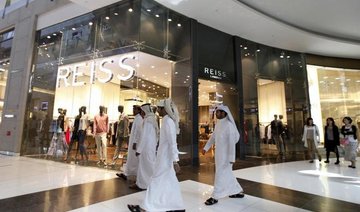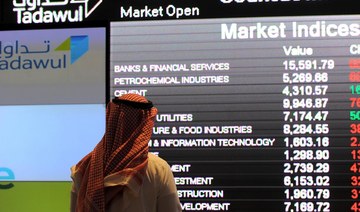Dubai often attracts multinationals looking for a base to serve the wider region. Saudi Arabia, though armed with a much bigger economy and population than the nearby emirate, can be overlooked.
This is about to change, said Nicholas Maclean, managing director for the Middle East at the real estate services firm CBRE. He believes that economic and political reforms spearheaded by Crown Prince Mohammed bin Salman are drawing the attention of international and GCC-based corporates and investors.
“We see a significant increase in the interest in Saudi Arabia. They want to know what is going on. They are interested in the changes — and they are interested in looking at the country for opportunities,” he said.
Over the past year, Saudi Arabia has lifted the 35-year ban on cinemas, announced plans to build up its tourism sector with luxury resorts on islands in the Red Sea, and revealed details of a new $500 billion business and industrial zone development, called Neom, which will have links to Jordan and Egypt.
“The level of enquiry we have to produce reports or give some commentary on Saudi Arabia to the US and Western Europe has gone up tenfold in the last 18 months,” he said, noting that interest spans sectors including retail, pharmaceuticals, defense, and hospitality.
However, a scarcity of appropriate real estate assets to buy will be a challenge for some of those interested investors.
“The nature of the real estate they require doesn’t exist at the moment. So we see corporates through their funding partnerships looking to create facilities that are fresh,” Maclean said.
The potential of the residential housing sector is another area catching the eye of international developers, particularly from the US, which, Maclean said, are looking to partner with Saudi organizations or families.
“Some of the big housing schemes are probably not in the locations where people want to be — so building housing en masse for young Saudis in locations where they want to live and have jobs is an opportunity for big international house builders,” he said.
With more international firms looking to find, manage or invest in property within Saudi Arabia, it has become increasingly relevant for CBRE to have a presence in the Kingdom.
“Now is the right time to go into the country,” Maclean said.
CBRE has signed a partnership agreement with local firm Dar Al-Riyadh and has been busily recruiting staff for the new office. It is set to bring in a team of members between now and August, and plans to host two launch events planned for October.
“We see that as Saudi Arabia appears to open the doors for more internationalization of its business sector, then we need to be there,” said Maclean.
The company currently has an operational presence in the Kingdom, offering services from Saudi Arabia that fall under its “Global Workspace Solutions” business line.
This area of business — which includes facilities management services — is designed for CBRE’s international corporate occupier clients. These companies could be occupying anything from offices to retail outlets or manufacturing spaces.
Maclean envisaged a “full service business” being offered in the Kingdom in the next few years, which will include a consulting division as well as other business lines such as advisory and transaction services and valuation services.
He is upbeat about the expansion, predicting Saudi business will grow “very fast.”
“It will at least match the scale of the businesses across the rest of the region put together within a relatively short period of time of three, four or five years,” he said.
CBRE’s growth ambitions in Saudi Arabia will benefit from what Maclean sees as a greater “willingness” and “change of attitude” among Saudis to work with companies overseas.
Examples of this willingness could be seen last year when foreign investors were allowed to participate in initial public offerings in the Kingdom, as well as to access a parallel stock market for small and medium-sized businesses.
International cinema chains from the UK and US were the first companies to sign deals to launch multiplexes in the country after the lifting of the ban in December.
“Where the challenge is for us is ensuring we bring some of the international expertise we have and make sure we fit culturally, and it is not insulting or patronizing to the local market,” he said.
Saudis themselves will play an important role in the growth of CBRE’s business, Maclean said, explaining that around half the workforce will be Saudi.
“We want to take young Saudis out of the country and put them through an international training program and bring them back,” he said.
While Saudi Arabia is now catching the eye of corporates, the business and trade hub of Dubai has clung on to its appeal to international business.
The low oil prices seen in recent years had posed a threat to the emirate, with some companies — particularly in the oil and gas sector — downsizing their operations and reviewing whether they really needed their expensive high-rise offices.
Maclean said he had seen signs that Dubai is getting much busier again.
“The drive back from Abu Dhabi to Dubai is painful again in the evenings,” he said anecdotally, referring to the increasingly busy main road linking the two emirates. “Getting around Dubai … it feels busier,” he said.
Maclean added that CBRE has enjoyed its “best year ever” in 2017 in Dubai’s commercial property sector, particularly among the Fortune 500 corporate clients.
This was in part due to many larger companies going through a consolidation process, moving to smaller offices, or taking fewer floors or even sharing property with others. CBRE provided advisory and other services that support those moves.
The quality of new available properties has also improved, Maclean said, noting there has been a “flight to quality.”
A CBRE research note released in February said that sustained occupier demand for good-quality office accommodation is likely to stay “relatively firm” for the next few quarters.
However, available office space will continue to outstrip demand as new completed properties come on to the market, the note said. This has placed particular pressure on “secondary quality” office space.
“The primary segment of the marketplace in Dubai and Abu Dhabi is going to perform quite well over the next two or three years, and probably the secondary or tertiary market will perform less well,” Maclean said.
Dubai-based companies, as well as those elsewhere in the UAE, are also paying much closer attention to how the office environment can help retain staff, which opens up opportunities for CBRE.
“We see more creativity in the interior designs,” he said, noting rising demand for more breakout spaces, and other features aimed at making the workplace a more pleasant place to be.
Retail is another area where CBRE sees increasing opportunity to offer its services, and the company recruited a new team focusing on this sector last year.
Dubai’s malls have long been a vital cog in the emirate’s economy, attracting tourists and locals alike to shop, eat, go to the cinema and even ski.
But with the launch of online retailer noon.com in September and Amazon buying souq.com, the sector is facing fresh challenges.
“Finding the balance between bricks and mortar and online is something we have people that specialize in around the world,” said Maclean. Retailers across the UAE are also dealing with the new value-added tax (VAT) which came into force at the beginning of this year.
However, one of the biggest opportunities in the commercial sector could be to open up the UAE’s commercial real estate market to more international investment, Maclean said.
“From an institutional perspective, there is some level of frustration. “There are lots of institutions that want to take a stake in Dubai but don’t. The nature of the market is relatively illiquid because that stock that comes to market, outside of the residential sector, is snapped up by GCC investors,” he said.
These buyers then tend to hold on rather than sell these assets.
“There is a really interesting opportunity for the UAE to capture a greater slice of foreign institutional capital moving around the world,” he said.
On the residential side, Dubai is preparing for a flood of new units to come onto the market which may keep property prices subdued.
Close to about 30,000 new units were added in 2017, according to CBRE figures published in February. The company has forecast that more than 90,000 new apartments and villas could enter the market between 2018 and 2020.
Maclean said there is always a “question mark” over whether the planned properties will be delivered on time, adding that developers may alter the delivery pipeline depending on demand.
Yet, this excess of supply coupled with reduced prices has lured many buyers back to the market.
Sales of off-plan properties increased by about 56 percent in 2017 compared to the previous year, in terms of the number of transactions, while the total value of sales increased 44 percent on the previous year, according to CBRE data.
“What we deduce from that is that gradually declining prices have reached a level which encouraged people to come back to the market,” he said.
It’s the ‘right time’ to move into Saudi Arabia, says CBRE
It’s the ‘right time’ to move into Saudi Arabia, says CBRE
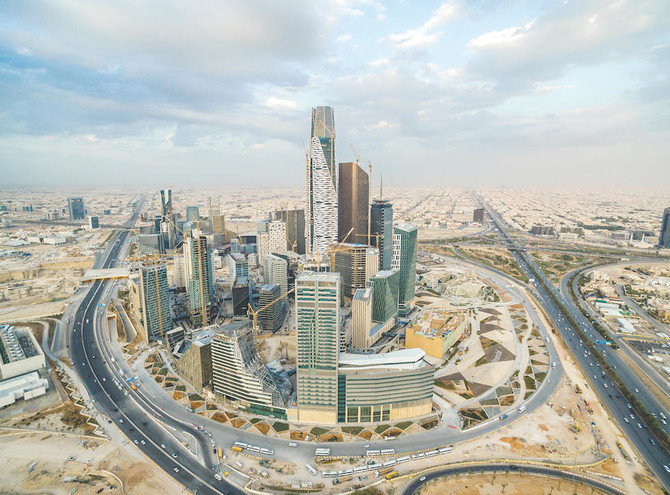
Saudi Rasan to offer 30% shares for IPO on Tadawul

RIYADH: Saudi-based fintech Rasan Information Technology Co. is set to offer 22.74 million shares for an initial public offering on the Kingdom’s main market.
The company, along with its subsidiaries, will list the shares, which represent 30 percent of its issued share capital, on Tadawul through the sale of 17.4 million existing ordinary shares as well as 5.3 million new ordinary shares, according to a statement.
While the existing ordinary shares account for 23 percent of the company’s issued share capital, the new ordinary shares represent 7 percent.
This comes following the Capital Market Authority’s approval in March of the fintech firm’s application for registering its share capital and offering the total number of ordinary shares, with a nominal value of SR1 ($0.27) per share.
Moreover, the offering proceeds after deducting IPO-related expenses will be distributed to the selling shareholders equally based on their shareholding in the existing ordinary shares.
The remaining proceeds are set to be distributed to the company in order to expand its current operations and products, market and develop new products, as well as finance the general purposes of the firm and its subsidiaries.
The final price of the offer shares, which account for the existing and new ordinary shares combined, will be determined by the existing shareholding and the company, in consultation with the financial advisers, following the book-building process and prior to commencement of the subscription period for individual subscribers.
The financial advisers include Saudi Fransi Capital and Morgan Stanley Saudi Arabia.
Saudi Aramco raises June’s Arab light crude price to Asia

RIYADH: Saudi Aramco raised June’s official selling price for the flagship Arab light crude it sells to Asia, according to an official statement.
Differentials for the flagship Arab Light grade were priced at Platts Dubai/DME Oman +$2.90 per barrel, up from +$2 a barrel in April.
This was the highest OSP in five months and largely in line with expectations, based on a firmer market structure and higher spot premiums last month for tradable Middle East grades such as Oman, Al Shaheen and Upper Zakum.
The higher OSPs also came after the Organization of the Petroleum Exporting Countries and its allies, known as OPEC+, maintained the first quarter round of voluntary cuts into the second quarter, while the global crunch on supplies of sour crude also underpinned Middle East grades.
Arab Medium was increased by $1 per barrel to +$2.35 per barrel, while Arab Heavy was hiked $1.10 a barrel to +$1.60 per barrel.
For Northwest Europe, the Arab Light OSP was set +$2.10 per barrel over ICE Brent futures, up from +$0.30/b while Medium was hiked from minus $0.40/b to +$1.10/b. Both grades were hiked to reflect the relative weakness in Brent compared to sour barrels.
Arab Light for April to the US Gulf was kept unchanged at +$4.75 per barrel over ASCI, while Medium was at +$5.45/b and Heavy at +$5.10/b, respectively, both slightly lower on the month.
Hong Kong, Chinese investors set eyes on Saudi market
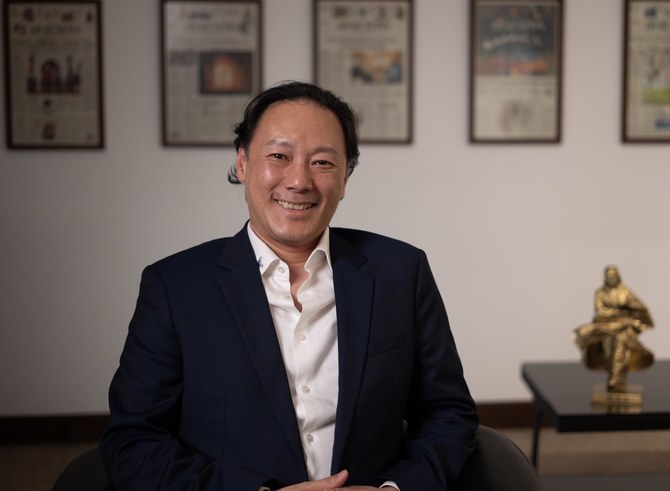
- A delegation of business leaders is set to explore diverse sectors in the Kingdom
RIYADH: Hong Kong and Chinese companies are gearing up for substantial investments in the Saudi market, marking a significant step toward strengthening economic ties, a top official said.
A delegation of 30 business leaders from Hong Kong and mainland China is set to explore diverse sectors in the Kingdom, propelled by the ambitious Vision 2030 outlined by Saudi leadership, King Leung, global head of financial services and fintech at Invest Hong Kong, said in an interview with Arab News.
Explaining the reason for his visit to Riyadh, Leung said: “I’m bringing a delegation of 30-plus executives across different disciplines to explore ways to do business in Saudi Arabia. This is not just about attracting inbound (investment), but also helping mainland Chinese companies use Hong Kong as a base to springboard to key markets like Saudi Arabia.”
Outlining the potential for co-investment between the two nations, he said: “Definitely, it’s going to be a huge number,” a sentiment that echoes the palpable excitement among Hong Kong investors who are eager to tap into the vast opportunities offered by the Saudi market.
The convergence of interests between Hong Kong and Saudi Arabia is underpinned by a notable synergy observed between businesses in both regions, the executive said, with an eye on forging strategic partnerships.
Hong Kong delegates, including private sector leaders and venture capitalists, are eager to explore avenues for collaboration that align with the objectives of Vision 2030.
“All these things that we are now finding out allow business leaders to see that some businesses from Hong Kong actually have very, very good synergy with Vision 2030 in your country.”
“It’s hard to quantify the exact number, but definitely, it’s going to be (a) huge number. I have to say these investments cut across different sectors, where you can imagine the market size is enormous,” he said, emphasizing the allure of megaprojects such as NEOM and the King Salman Park, which are set to transform the Saudi investment landscape.
These projects not only serve as magnets for investment but also catalyze growth in ancillary sectors such as financial services and consumer products, the head of financial services emphasized.
“These are megaprojects. So, all these things are going to really attract a lot of business activities, of course, initially in construction. But once you have all this construction coming in, then you need the other peripheral sectors to service them, like financial services, consumer products, and payments. So, all these things present a lot of opportunities that really get our delegates and investors from Hong Kong and China very excited,” he further explained.
Another testament to the nation’s favorable investment ecosystem is its “impressive GDP growth and low debt ratio,” factors that instill confidence among investors.
Among the sectors garnering attention are green energy and advanced manufacturing, the delegate said, affirming that Saudi Arabia is “paving the way for the future” of clean energy.
Hong Kong-based companies, armed with cutting-edge technologies, are eyeing opportunities to contribute to Saudi Arabia’s sustainable development goals.
“I understand that your country is also paving the way for the future, including adopting green energy now. So, one green energy company that I have been talking to in mainland China, they have been in the green hydrogen space for some time, and they are evaluating to put a green hydrogen factory in Saudi Arabia.”
Thus, projects such as the green hydrogen factory, poised to harness solar power for hydrogen production, exemplify this collaborative spirit.
“Now, of course, the reason why they’ve done that, part of it, is because the way they generate hydrogen is to use solar power. So they need to go to a place where this is something in abundance. Now, at the same time, you also have some highly visionary, highly capable investment vehicles from the PIF and other funds,” he noted.
Furthermore, the burgeoning fintech ecosystem in Saudi Arabia presents fertile ground for collaboration between Hong Kong and the Kingdom.
Fintech companies from Hong Kong are eager to leverage their expertise to enhance banking services and drive digital transformation initiatives in the Kingdom, the executive noted, adding, “In our delegation, we have roughly, I’ll say between 10 to a dozen or so fintech companies that are very keen to see if they can bring the business and set up in Saudi Arabia so that they’re able to service the banks here.”
On the opposite end, recognizing the potential for synergy, banks from Saudi Arabia are contemplating establishing a presence in Hong Kong to bolster their trade and financial services, he said.
This strategic move aims to capitalize on Hong Kong’s strategic position as a gateway to the Chinese market, thereby facilitating closer economic ties between Saudi Arabia and China.
“Of course, we would love to see some Saudi companies set up in Hong Kong. In fact, two of the significant meetings we had were with banks, and now these banks are interested in setting up a presence in Hong Kong,” the official said.
“This is because of the close trading relationships, and they would like to have a presence in Hong Kong to serve, for example, Chinese customers. This way, they can facilitate services like trade finance and various other services handled by the headquarters in Riyadh,” he added.
This comes after a pivotal moment in strengthening the economic ties between Hong Kong and Saudi Arabia, marked by the signing of a memorandum of understanding between Invest Hong Kong and the Ministry of Investment of Saudi Arabia last year.
As a result of this agreement, delegates from Hong Kong have been afforded unique insights into Saudi Arabia’s macroeconomic landscape, grand vision, and burgeoning investment opportunities, further fueling their enthusiasm for collaboration and investment in the Kingdom.
“Last year, our leader at Invest Hong Kong signed an MoU with MISA. That MoU brought us even closer together. They have been very kind to bring in leaders from different aspects to educate us about your country, from macroeconomic data to the grand vision from leaders in both the public and private sectors,” he said.
Leung said they also shared insights into projects that have already gained significant traction. “All in all, our delegation was super impressed by the progress made by the country,” he concluded.
Japan keen to forge partnerships with Saudi Arabia in the field of IT, says minister
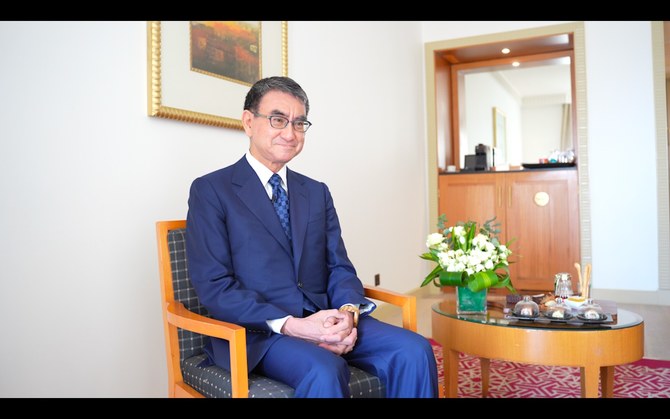
JEDDAH: Lauding Saudi Arabia’s efforts in developing giga-projects and the ongoing digital transformation in the country, a top Japanese official expressed his country’s willingness to strengthen collaboration with the Kingdom in the field of information technology.
Speaking to Arab News, Japanese Minister for Digital Transformation Taro Kono described his recent visit to one of the crown jewels of Vision 2030, NEOM, as truly remarkable.
The minister said that “he had the opportunity to fly over the project and witnessing it firsthand was truly remarkable.”
Since the launch of Vision 2030, Saudi Arabia has been in overdrive to diversify its economy away from oil and emerge as a hub of tourism, entertainment, technology, and renewable energy. On its road to transformation, the Kingdom is forging strategic partnerships with its global allies to achieve its target and work on mutually beneficial arrangements.
“I heard a lot about NEOM and The Line, I saw that the progress made was very impressive. And we heard the vision from the CEO. And it’s very convincing. So I was very glad that I came to NEOM this time. It was a very short (trip), but I think it was worth it,” the minister told Arab News.
NEOM, often referred to as the “city of the future,” is a $500-billion megacity project situated in the northwest region of Saudi Arabia. Encompassing 26,500 sq. km, the project aims to become a global leader in technology, innovation, and tourism through futuristic urban design and sustainable energy solutions.
Talking about Saudi Arabia’s demography, the minister said it is “a very young country” where the majority of the people are under the ages of 30-35. “And I see the Kingdom becoming more vibrant. And projects like NEOM” show that the country is swiftly moving forward.
Acknowledging the Kingdom’s success in adapting to the latest technologies, particularly related to cybersecurity, Kono praised the country’s leadership and its vision. He expressed his eagerness to forge a partnership with his Saudi counterpart to “learn from the Kingdom’s success.”
“I think the Kingdom is building up its resilience against any malicious attacks in cyberspace. So, I believe it is very ready to take a bold step forward. And I had a meeting with Saudi Minister of Communications and Information Technology Abdullah Al-Swaha and I think there’s a lot to learn from the Kingdom,” the Japanese minister said, adding that he had instructed his team to get in touch with their Saudi counterparts to learn from their approach.
Kono, however, stressed the need to develop non-English datasets to train artificial intelligence and proposed collaboration between Japan and Saudi Arabia in this regard.
While Japan has historically led in hardware technology, the minister admitted a lag in digital technology investment. Recognizing this gap, he signed a memorandum of cooperation with Al-Swaha to learn from Saudi Arabia’s IT advancements.
He said that although Japan excelled in analog technology during the 20th century, admittedly, they have fallen behind in investing in digital technology.
Their discussions reportedly included topics such as E-ID utilization, where Kono hopes to collaborate on developing mutual use cases to propel Japanese progress. He added: “I think the Kingdom and Japan could work together to advance in the field of IT software AI, so very much looking forward to that.”
With shared visions such as Vision 2030 and upcoming events like Expo 2025 in Osaka and Expo 2030 in Riyadh, the two countries have maintained a strong relationship for nearly seven decades.
Kono believes there is immense potential for collaboration between the two countries, particularly in joint projects for Expo 2025 in Osaka and Expo 2030 in Riyadh. “I am looking forward to continue working closely with the Kingdom,” he added.
Expo 2025 is scheduled to be held in Osaka, Japan. It will be held for 184 days This will be the third time for the Japanese city to host the event. Earlier Osaka hosted the global event in 1970 and then in 1990.
The theme for Expo 2025 is “Designing Future Society for Our Lives,” focusing on creating a better future through innovation and sustainability. The expo will provide a platform for countries to share their ideas and solutions to global challenges.
Expo 2030 is scheduled to be held in Riyadh. As the first World Expo to be hosted in the Middle East, it presents an opportunity for the region to showcase its cultural heritage, technological advancements, and vision for the future. The theme for Expo 2030 in Riyadh is “The Era of Change: Together for a Foresighted Tomorrow.” It is expected to align with Saudi Arabia’s Vision 2030 goals of diversifying the economy and promoting innovation.
Kono said: “When we had our expo in Osaka for the first time, I was probably seven or eight years old. But it gave us sort of a good, big push for the economy, or not just the economy, for society as well. Expo brings in a lot of our dreams, and dreams we had back then come true. So, this Expo 2025 will hopefully bring in another dream. And I hope it will make a bridge to 2030 and we (Saudi Arabia and Japan) can work together to make our dreams come true.”
Closing bell: Saudi main index rises to close at 12,373
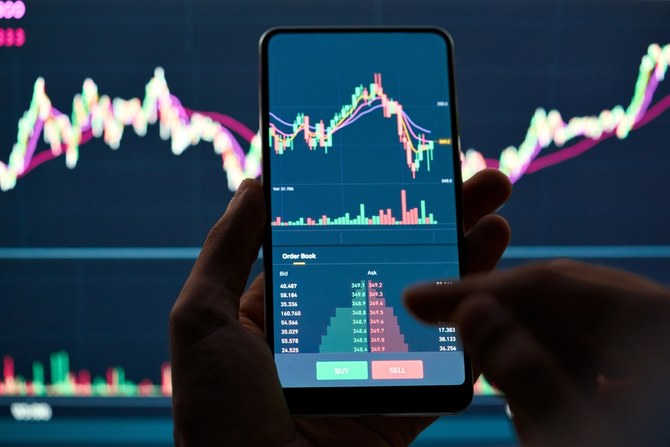
RIYADH: Saudi Arabia’s Tadawul All Share Index rose on Sunday, gaining 20.78 points, or 0.17 percent, to close at 12,373.11.
The total trading turnover of the benchmark index was SR5.26 billion ($1.4 billion) as 92 of the stocks advanced, while 129 retreated.
Similarly, the Kingdom’s parallel market Nomu also rose 332.34 points, or 1.26 percent, to close at 26,790.15. This comes as 27 of the stocks advanced, while as many as 31 retreated.
Meanwhile, the MSCI Tadawul Index jumped 4.56 points, or 0.29 percent, to close at 1,551.76.
The best-performing stock of the day was Zahrat Al Waha for Trading Co. whose share price surged 9.97 percent to SR47.45.
Other top performers include Raydan Food Co. as well as Saudi Cable Co.
The worst performer was Gulf Insurance Group whose share price dropped by 9.94 percent to SR34.90.
Other subdued performers included Al-Baha Investment and Development Co. as well as Salama Cooperative Insurance Co.
On the announcements front, Saudi Tadawul Group Holding Co. has announced its interim financial results for the period ending on March 31.
According to a Tadawul statement, the company’s net profit hit SR201.5 million in the first quarter of 2024, reflecting a 121 percent surge when compared to a similar quarter last year.
The increase was mainly driven by a rise in operating revenues, operating expenditures, and earnings per share as well as a climb in gross profit and operational profit.
Moreover, the National Agricultural Development Co. also announced its interim financial results for the first three months of 2024.
A bourse filing revealed that the firm’s net profit reached SR101.3 million by the period ending on March 31, up 168 percent in comparison to the corresponding period in 2023.
The increase in net profits is primarily attributed to a rise in revenue, a decrease in the cost of sales, and a reduction in finance costs, among other factors.
Furthermore, Gulf Insurance Group also announced its interim financial results for the first quarter of the year.
According to a Tadawul statement, the company reported a net loss of SR20.2 million, contrasting with a net profit of SR56.6 million in the same period of the previous year.
This loss is primarily attributed to a decrease in insurance revenue combined with adverse movement in reinsurance contracts.
Additionally, Saudi Aramco Base Oil Co., also known as Luberef, announced its interim financial results for the period ending on March 31.
A bourse filing revealed that the firm’s net profit stood at SR239 million at the end of the first quarter of 2024, reflecting a 46.3 percent drop when compared to the same quarter a year ago.
The decline in net profit for the current quarter compared to the same quarter of the previous year is attributed to a decrease in base oil crack margins.
Meanwhile, Saudi Cable Co. disclosed its annual financial results for the period ending on Dec. 31.
According to a Tadawul statement, the company reported a net profit of SR36.5 million in the first three months of 2024, a significant improvement from the net loss of SR584.9 million recorded in the corresponding period a year ago.


